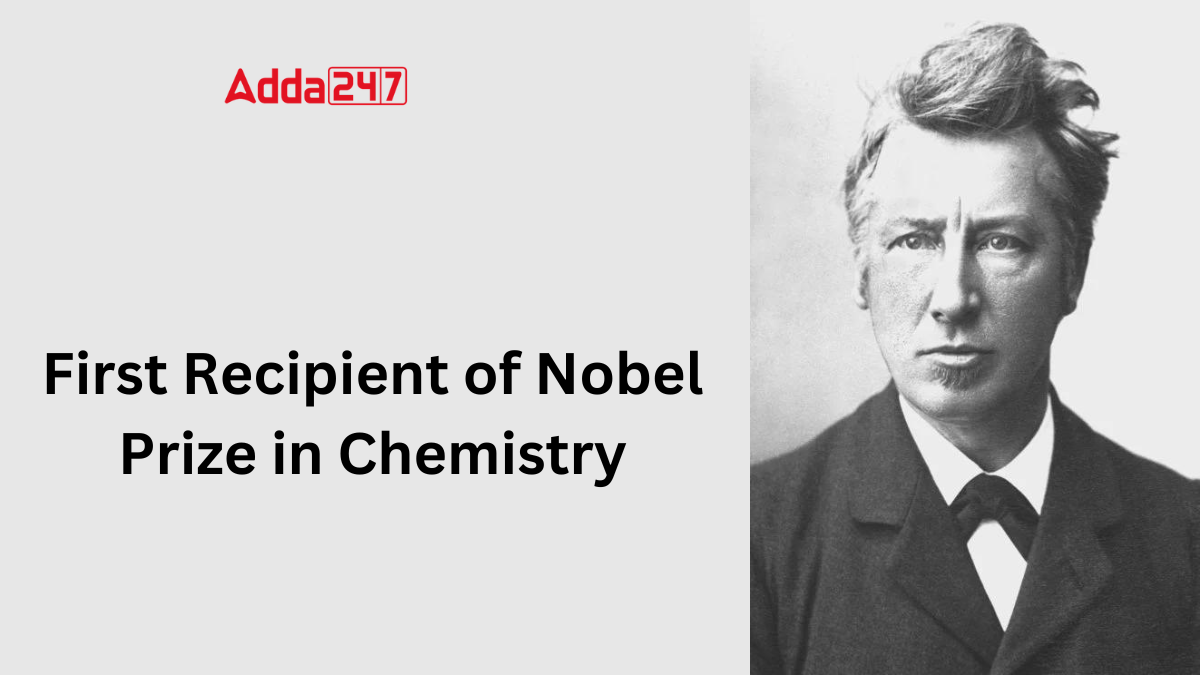First Recipient of Nobel Prize in Chemistry, Know His Name [Current Affairs]
Jacobus Henricus van ‘t Hoff Jr. (1852–1911) was a Dutch physical chemist renowned for his groundbreaking contributions to chemical thermodynamics, kinetics, and stereochemistry. He was the first person to win the Nobel Prize in Chemistry in 1901. His work laid the foundation for physical chemistry, making him one of the most influential theoretical chemists of his time.
Early Life and Education of Jacobus Henricus van’t Hoff Jr.
Born in Rotterdam on August 30, 1852, van ‘t Hoff showed an early interest in science and nature. Despite his father’s wishes for him to pursue medicine, he followed his passion for chemistry. He attended Delft University of Technology and later studied at various prestigious institutions, including the University of Leiden and the University of Bonn. His doctoral thesis, under the guidance of Eduard Mulder, was completed at the University of Utrecht in 1874.
Contributions to Stereochemistry
Van ‘t Hoff’s pioneering work in stereochemistry began in 1874 when he formulated the theory of the tetrahedral carbon atom, which explained the optical activity of organic compounds. This discovery revolutionized the understanding of molecular structures and laid the foundation for the study of isomerism. His theory was initially met with skepticism but later gained widespread acceptance, thanks to support from prominent chemists such as Johannes Wislicenus.
Foundation of Physical Chemistry
In 1884, van ‘t Hoff published his influential work on chemical kinetics and equilibrium, Études de Dynamique chimique. His research applied the laws of thermodynamics to chemical reactions, introducing concepts that would shape the future of physical chemistry. He also explored the behavior of dilute solutions and gases, developing the Van ‘t Hoff equation, which relates temperature to reaction rates.
First Nobel Prize Winner in Chemistry
In 1901, Jacobus van ‘t Hoff became the first recipient of the Nobel Prize in Chemistry. His Nobel-winning work focused on the properties of dilute solutions, showing that their behavior closely followed the laws governing gases. This research significantly advanced the understanding of chemical affinity and osmotic pressure, solidifying van ‘t Hoff’s place in the annals of scientific history.
Later Years and Legacy of Jacobus van’t Hoff
After serving as a professor at several institutions, including the University of Amsterdam, van ‘t Hoff moved to Germany, where he concluded his career at the University of Berlin. His contributions earned him numerous accolades, including the Davy Medal, Pour le Mérite, and the Helmholtz Medal. He passed away on March 1, 1911, in Berlin from tuberculosis. His legacy lives on through the Van ‘t Hoff equation, factor, and his lasting influence on modern chemistry.
Source: currentaffairs by adda247
